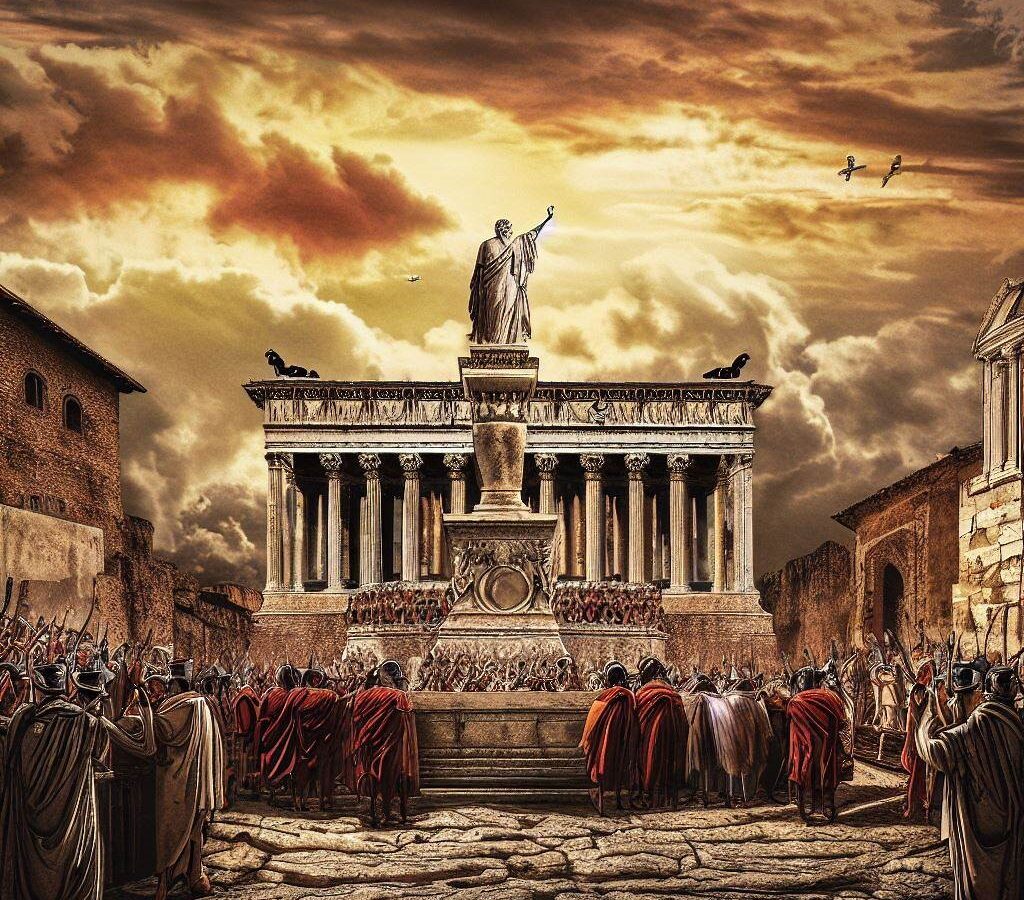The Fall of the Monarchy and Rise of the People
The Roman Kingdom had ruled for centuries, but unrest was growing among the common people known as plebeians. Resentment towards the patrician elite class had been mounting for years under the oppressive rule of King Tarquin the Proud. In 509 BC, this came to a boiling point as Tarquin was overthrown in a popular uprising. The people called for sweeping political reforms to establish a more representative government that shared power between social classes.
A Foundation of Balance and Participation
Led by the legendary figure Lucius Junius Brutus, the Roman senators crafted a new constitution transitioning governance from a monarchy to a republic. They aimed to balance power between the patrician Senate, plebeian citizen assemblies, and annually elected officials known as consuls. Key principles of this early democratic system included annual elections, checks on executive authority, and legal protections for citizens outlined in the Twelve Tables of Roman Law. This marked the official founding of the Roman Republic in 509 BC.
Success and Transformation Through the Centuries
Over the next five centuries, Rome underwent profound changes but maintained the republican foundations of balanced governance and civic participation. Conflicts between patricians and plebeians ushered in reforms expanding rights for commoners. Military campaigns helped build the Roman Empire, dominated the Mediterranean world, and ushered in a Golden Age under great leaders like Scipio Africanus and Marius. However, the late Republic faced instability from unchecked generals and populist politicians that paved the way for imperial ambition.
The Rise of Augustus and Transition to Empire
In 27 BC, after years of civil war, Octavian, now known as Augustus, became Rome’s first emperor concentrating power in his own hands but maintaining the offices of the Republic. While the Roman constitution was permanently altered, Augustus respected long-held traditions and institutions, stabilizing Rome under principate rule. This marked the official end of the Roman Republic and transition to the Imperial period, though the republican foundations Augustus espoused would influence later Roman governance for centuries to come.
The Legacy of Liberty and Civic Participation
The Roman Republic left an indelible mark as the roots of Western democracy through its innovations in balanced governance, civil liberties, citizenship rights, and a model of civic participation that outlasted the rise and fall of any single ruler. Its legacy continues to influence modern democracies today through principles of rule of law, checks on executive power, and the importance of consent of the governed through open and free elections. The Roman Republic stands as the beginning of Rome’s great contribution to the evolution of participatory government.

Originally posted 2023-09-09 10:21:37.




